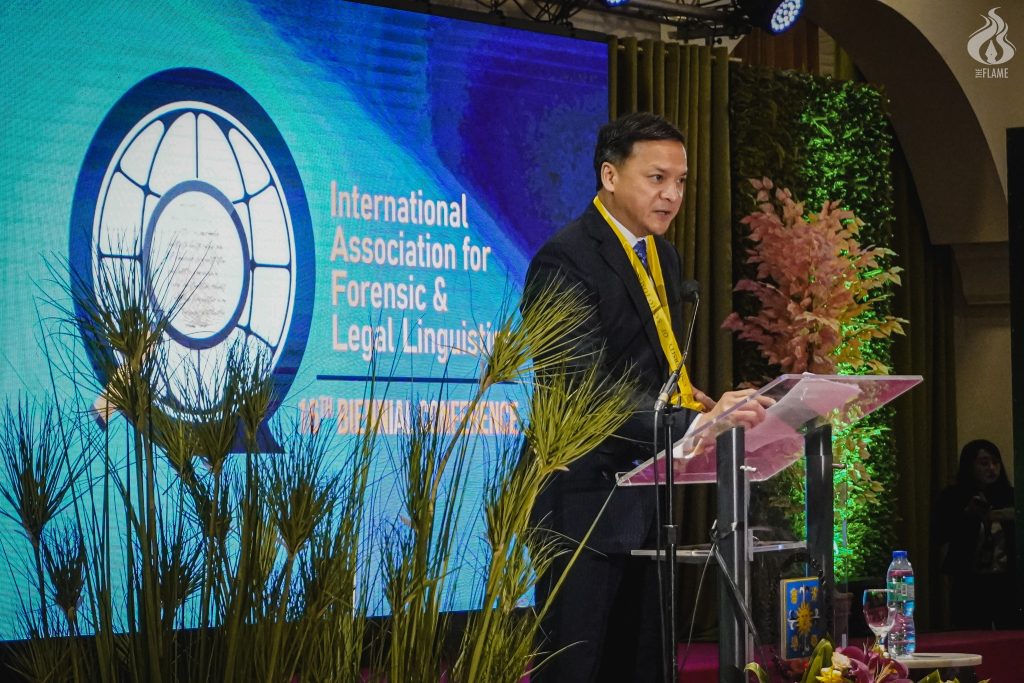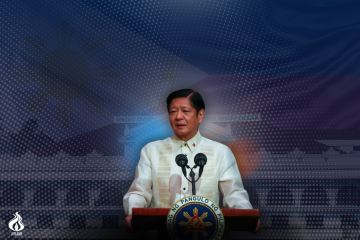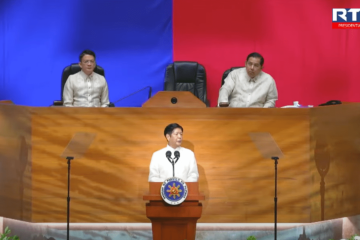
DESPITE ITS capability to analyze huge amounts of data and documents, artificial intelligence (AI) cannot replace linguists who are at the forefront of overcoming language barriers in the judiciary, Chief Justice Alexander Gesmundo said.
In a speech read by Associate Justice Midas Marquez during the 16th biennial conference of the International Association for Forensic and Legal Linguistics last July 4, Gesmundo said AI should support, not supplant the work of linguists.
“Aside from potentially supercharging undertakings like language and document analysis and speaker and author recognition, of particular interest to those in multilingual jurisdictions such as ours is the development of machine learning for real-time translation tools to help overcome language barriers,” Gesmundo said.
“All this, of course, is not meant to replace linguists, but to support and accelerate their work—just as we are hoping the use of AI will do for us in the Philippine judiciary through the SPJI (Strategic Plan for Judicial Innovations),” he added.
Gesmundo noted that AI systems are prone to biases and issues related to data privacy and security and accuracy.
“These could impact the administration of justice and questions over the admissibility of AI-generated evidence in court,” the Chief Justice said.
“Even with the torrent of such tools, we count on linguists such as yourselves to stay at the helm of the field, especially given the issues that are likely to arise when law, language, and technology intersect.”
Despite the issues surrounding AI, Gesmundo said integrating the technology in the work of linguists could still help in building an accessible and inclusive judiciary through real-time translation tools and AI-powered transcriptions.
He noted that courtroom communications, which remain mostly in English, are challenged by the country’s gap in language proficiency.
“This (communication barrier)…has deep implications on the quality of justice dispensed by our courts. Beyond this is the question of access to justice, especially since, as others have noted, the linguistic divide also cuts along lines of social classes,” Gesmundo said.
The Chief Justice expressed hope that forensic and legal linguists and academics would strengthen their collaboration to simplify legal language using AI tools and uncover the truth in courtrooms.
“Truth that opens pathways to healing, restitution, and justice. Truth that shines a light on who we are and how we connect and communicate,” he said.
Gesmundo was named the country’s 27th Chief Justice in 2021 by then president Rodrigo Duterte.
The conference, which carried the theme, “Forensic Linguistics: Strengthening Foundations, Rethinking Paradigms, and Navigating New Horizons,” was held from July 4 to 6 at the Buenaventura Garcia Paredes, O.P building.F – Y. Roxas and K. Chan



